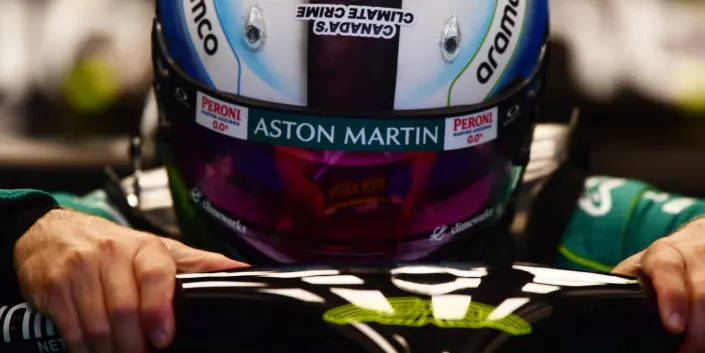Electric pickup trucks in the works: Coming soon, on-sale and questionable
And there are probably some coming we have yet to hear about

It’s possible that I shall make an ass of myself. But in that case one can always get out of it with a little dialectic. I have, of course, so worded my proposition as to be right either way (K.Marx, Letter to F.Engels on the Indian Mutiny)
Electric pickup trucks in the works: Coming soon, on-sale and questionable

Not long ago, pickup drivers who wanted to go electric had exactly zero options to choose from. Now there are but a few with more on the way -- some we know about and other still to be revealed. There are also certainly some electric trucks currently planned that sadly won’t see the light of day. Here are the EV pickups we’ve officially been told to expect, along with some rumored products. For good measure, we’ve included those few success stories that have already begun making their way into customers’ garages, as well as those that have been abandoned by their makers.
LOTS OF TRUCK PICS
Electric pickup trucks in the works: Coming soon, on-sale and questionable (autoblog.com)
Brittney Griner tried to call her wife Cherelle Griner 11 times on Saturday through the American embassy in Russia, but the embassy wasn’t properly staffed, Cherelle Griner told The Associated Press on Monday.
Cherelle and Brittney haven’t spoken in more than four months since Brittney was arrested in Russia. The two were set to talk over the phone Saturday to celebrate their wedding anniversary. Yet Brittney never called, at least that’s what Cherelle initially thought.
On Monday, Cherelle learned that Brittney called 11 times over several hours to a number she was given by the United States embassy in Moscow, per the AP report. The embassy was then going to patch the call through to Cherelle in Phoenix.
But nobody was at the desk in the embassy Saturday to connect the couple.
“I was distraught. I was hurt. I was done, fed up,” Cherelle told The Associated Press. “I’m pretty sure I texted BG’s agent and was like, ’I don’t want to talk to anybody. It’s going to take me a minute to get my emotions together and just tell everybody I’m unavailable right now.’
“Because it just knocked me out. I wasn’t well, I’m still not well.”
The State Department said that “we deeply regret that Brittney Griner was unable to speak to her wife because of a logistical error.” Cherelle said that someone in the U.S. government called to apologize.
While the number Brittney was given is typically used during the week, Cherelle said the call had been on the books for quite some time.
“This phone call had been scheduled for almost two weeks, with a weekend date,” Cherelle told The Associated Press.
Brittney was first arrested in Russia in February after officials claim they found vape cartridges with hashish oil in her luggage at a Moscow airport. She has been detained ever since, and her detention was extended through at least July 3. The State Department classified Brittney as a wrongfully detained citizen, and pressure has been mounting on the government to bring the Phoenix Mercury star home.
Though she wants Brittney home as soon as possible, Cherelle was looking forward to the next best thing Saturday.
“This was such a big moment because this would have been the first time where I truly could tell if she’s OK,” Cherelle said, via The Associated Press. “This would have been the first time for me to actually just hear her in real time and to truly know if she’s OK or to know if she’s seconds away from not being in existence anymore.”
Cherelle said she has starting to lose hope that President Joe Biden and his administration can help bring Brittney home, and that even hoping to talk with Biden about the situation is “starting to feel like a no.”
After all, she said, a phone call is a much easier ask than getting her wife released from foreign custody.
“I find it unacceptable and I have zero trust in our government right now," Cherelle said, via The Associated Press. "If I can’t trust you to catch a Saturday call outside of business hours, how can I trust you to actually be negotiating on my wife’s behalf to come home? Because that’s a much bigger ask than to catch a Saturday call.”

OUTLAW ECOCIDE OUTLAW F1
Vettel Riles Politician at F1 Canadian Grand Prix for Hypocritical Stance on Fossil Fuels

Sebastian Vettel has raised awareness of local societal and environmental issues at Grands Prix this year in a sequence of T-shirts and helmet designs.
In Canada, it was the mining of tar sands in Alberta, which involves the destruction of forests in order to extract bitumen. That raised the attention of some politicians, including Alberta's minister of energy Sonya Savage, who on social media immediately pointed to Vettel’s hypocrisy, highlighting Aramco’s title sponsorship of Aston Martin.
“Yeah, it is right,” said Vettel. “But what you miss… I’m disappointed politicians jump on a personal level, it is not at all about me it is about the bigger picture. Yes, I am hypocrite doing what I do for a living, this is my passion, this is the way I paint my canvas, but there are solutions for the future to make it more sustainable and not rely on fossil fuels.
"It is disappointing we break it down to a personal level and miss the bigger picture – we need to make the switch and start to base our whole lifestyle on renewables. I think that’s the bigger picture stuff that I’m trying to address.”
Vettel, though, removed the design for the race itself and sported his usual scheme.









